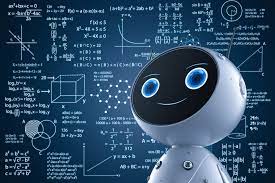In the ever-evolving landscape of technological advancements, Math Solver AI artificial intelligence (AI) has emerged as a powerful tool, transforming various aspects of our lives. One such area witnessing a paradigm shift is mathematics, where AI-powered math solvers are revolutionizing problem-solving methodologies. From simplifying complex equations to providing step-by-step solutions, these AI systems are reshaping the way we approach mathematical challenges.
Understanding AI Math Solvers
AI math solvers are sophisticated algorithms designed to interpret and solve mathematical problems autonomously. Leveraging techniques such as machine learning, natural language processing, and symbolic computation, these systems can tackle a wide array of mathematical tasks, ranging from algebraic equations to calculus problems.
One of the key features of AI math solvers is their ability to understand and interpret human language. Users can input mathematical expressions in natural language form, and the AI solver processes this input to generate accurate solutions. This capability enhances accessibility, allowing individuals with varying levels of mathematical proficiency to benefit from these tools.
The Benefits of AI Math Solvers
- Efficiency: Traditional methods of solving mathematical problems often require time-consuming manual calculations. AI math solvers automate this process, significantly reducing the time and effort required to obtain solutions. This efficiency is particularly valuable in educational settings, where students can focus more on understanding concepts rather than getting bogged down by tedious calculations.
- Accuracy: AI math solvers are capable of producing highly accurate solutions, minimizing the risk of human error. By leveraging advanced algorithms and computational techniques, these systems can handle complex equations with precision, ensuring reliable results.
- Educational Aid: AI math solvers serve as valuable educational aids, offering students personalized assistance in mastering mathematical concepts. Through interactive interfaces and detailed explanations, these tools help learners develop problem-solving skills and deepen their understanding of mathematical principles.
- Versatility: From basic arithmetic problems to advanced calculus equations, AI math solvers can handle a wide range of mathematical tasks. This versatility makes them invaluable tools for students, educators, researchers, and professionals across various disciplines.
Applications of AI Math Solvers
- Education: In the realm of education, AI math solvers are used to supplement traditional teaching methods, providing students with additional resources to enhance their learning experience. These tools can be integrated into online learning platforms, homework assistance applications, and interactive textbooks, offering personalized support to learners.
- Research: In scientific research, AI math solvers play a crucial role in modeling complex phenomena, simulating mathematical systems, and analyzing experimental data. Researchers leverage these tools to expedite the process of mathematical analysis and hypothesis testing, facilitating breakthroughs in various fields of study.
- Industry: In industries such as engineering, finance, and computer science, AI math solvers are utilized for optimization, predictive modeling, and decision-making purposes. These tools enable professionals to solve complex mathematical problems efficiently, leading to improved productivity and innovation.
Future Outlook
As AI technology continues to advance, the capabilities of math Math Solver AI solvers are expected to evolve further. Enhanced natural language understanding, real-time collaboration features, and integration with emerging technologies such as augmented reality are some of the developments on the horizon. Additionally, the democratization of AI tools and the proliferation of open-access platforms are poised to make AI math solvers more accessible to users worldwide.
In conclusion, AI math solvers represent a significant advancement in problem-solving methodologies, offering efficiency, accuracy, and versatility across various domains. As these tools continue to evolve, they hold the potential to transform the way we approach mathematical challenges, empowering individuals and driving innovation in education, research, and industry.





